My next post in the series “The Motorhome Years”.
Most new motorhomers recall quite readily the “shudder and loud groan” when recalling issues when it came to finding a place to park up for the night, especially if, like us, they owned a large motorhome [R.V.].
It would send us into a mild panic for a few moments each day.
This, of course, improved with experience, as does most things in life.
During our first year, we were conservative about where we parked for the night and who our neighbours would be. Well, who was to know what or who was behind those twitching curtains or blinds as the roaring engine came to a halt? On a few occasions, the Squire had to head back to the driver’s seat and shift PurrInn, so “her” in the passenger seat was feeling more comfortable and less anxious.
We still laugh at how we thought and acted in those first few months.
An old saying comes to mind: “Don’t judge a person by their appearance.” The scruffiest and unkempt person we met ended up being a life-educated businessman from the area where we used to reside. We knew him.
We weren’t, nor was he interested in chatting about what we all used to do for a living. Of course, the first bit of tantalising conversational information to break the ice was the state of the weather, with the more critical details to follow, such as where the best place to park, the best dumping site, walks, and the most lucrative waters are to catch a fish or two.
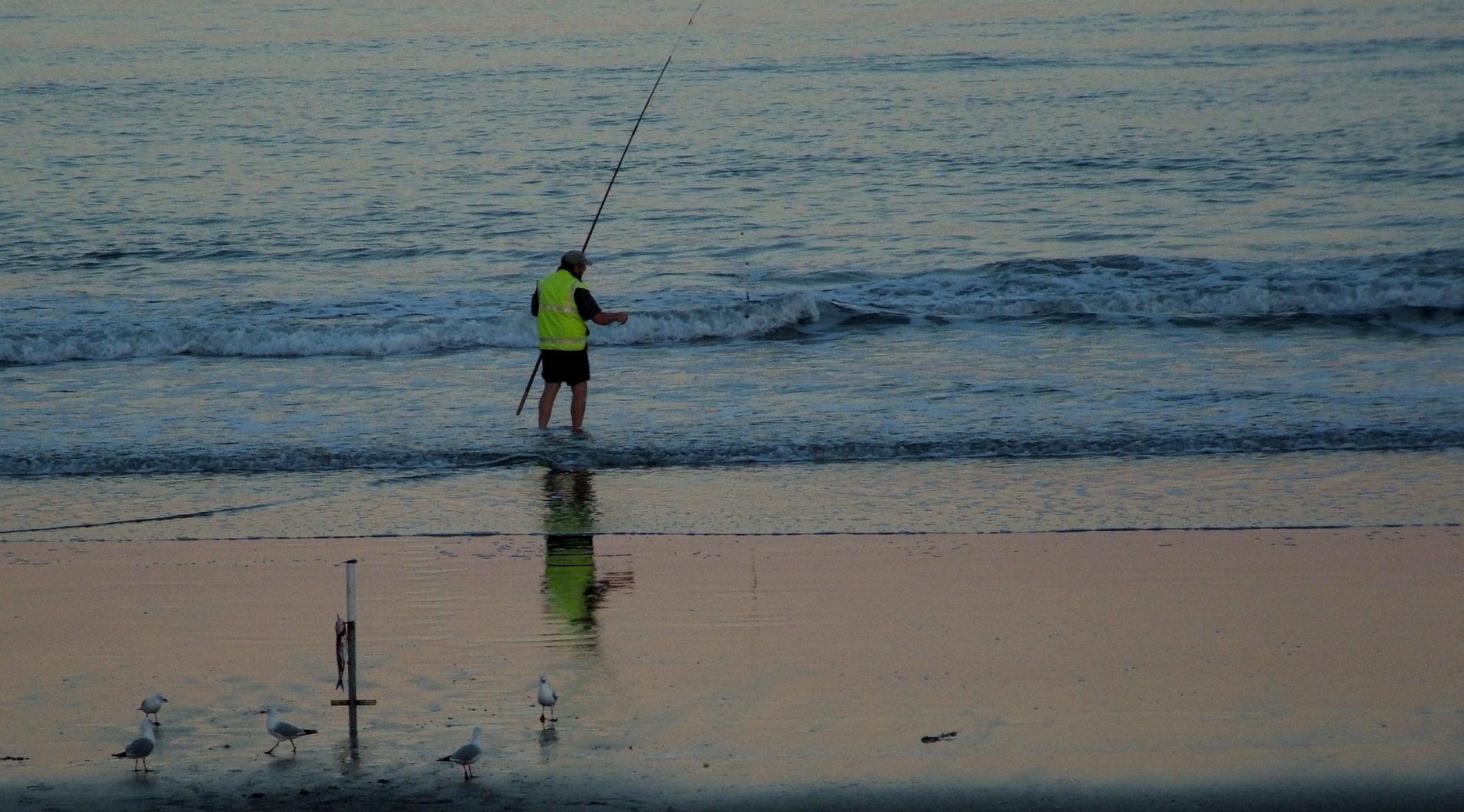
That particular gentleman was very well informed on what to do and what not to do as full-timing motorhomers. This was the most reliable and entertaining source of gaining information about where to camp/park up for a while to smell the flowers and fish and natter to other like-minded folks. It is also good to collect stories about life in general around the circle during Happy Hour. Which happens more than it does not occur around the witching hour of 5 p.m., no matter where you go.
The most prominent concern regarding where to camp was PurrInn’s ability to keep us in the usual style of current power requirements we were used to, as she did not have an abundance of battery storage and a very minimal amount of solar panels. This made choosing where to stay the night all dependent on the level of energy in PurrInns batteries, without a regular dose of sun we had to use a generator, or spend weeks on power during the winter time.
We languished on this for a few years.
The primary reason for putting up with a lack of a significant source of independent power was the price of solar panels. They were quite pricey 10 years ago. We seemed to be surviving on what we had during good weather. Once winter approached, we had to pay for a campsite during most weeks to have a regular source of power. The usual place in our first year was a holiday park. This was our least enjoyable type of park-up when we got more confidence about “where to camp”. The primary reason is the cost which on average $20-30 a night. It was not a cheap option.
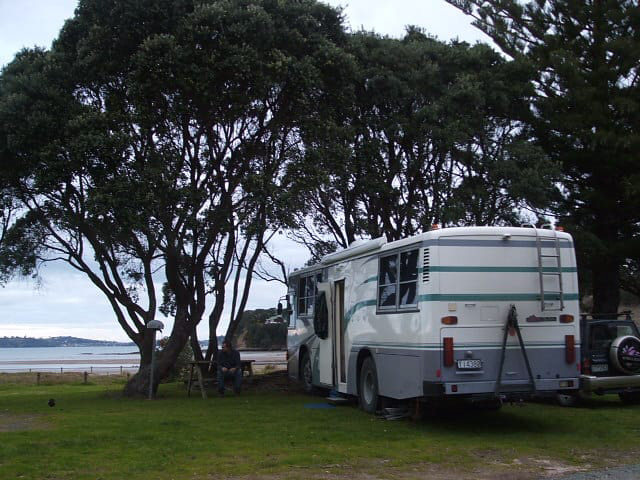
An invaluable option and one that we used more in the following years was the NZMCA park over properties, which we enjoyed using. More importantly, we met other like-minded people.
Who and what is the NZMCA? For more detailed information about the NZMCA, see the links below. Then came more confidence and the desire to go freedom camping for extended periods and live entirely off the grid.
WINTER 2008
Where did we venture off to during our first winter as full-timers?
Of course, as did many motorhomers back then or to the Bay of Plenty, where we had left, we headed to the Winterless North. Kerikeri is where we decided to spend our first winter. It is situated North of Auckland and an hour or more North of Whangarei.
We learnt more about our new way of life at a pleasurable pace, between a torrid rain. With a good heating source due to being on power, it wasn’t too bad at all. We did manage day trips from our home base to capture the beauty of the surrounding sites, such as the 90-mile beach, Cape Reinga and other historical sites. See below for more information.
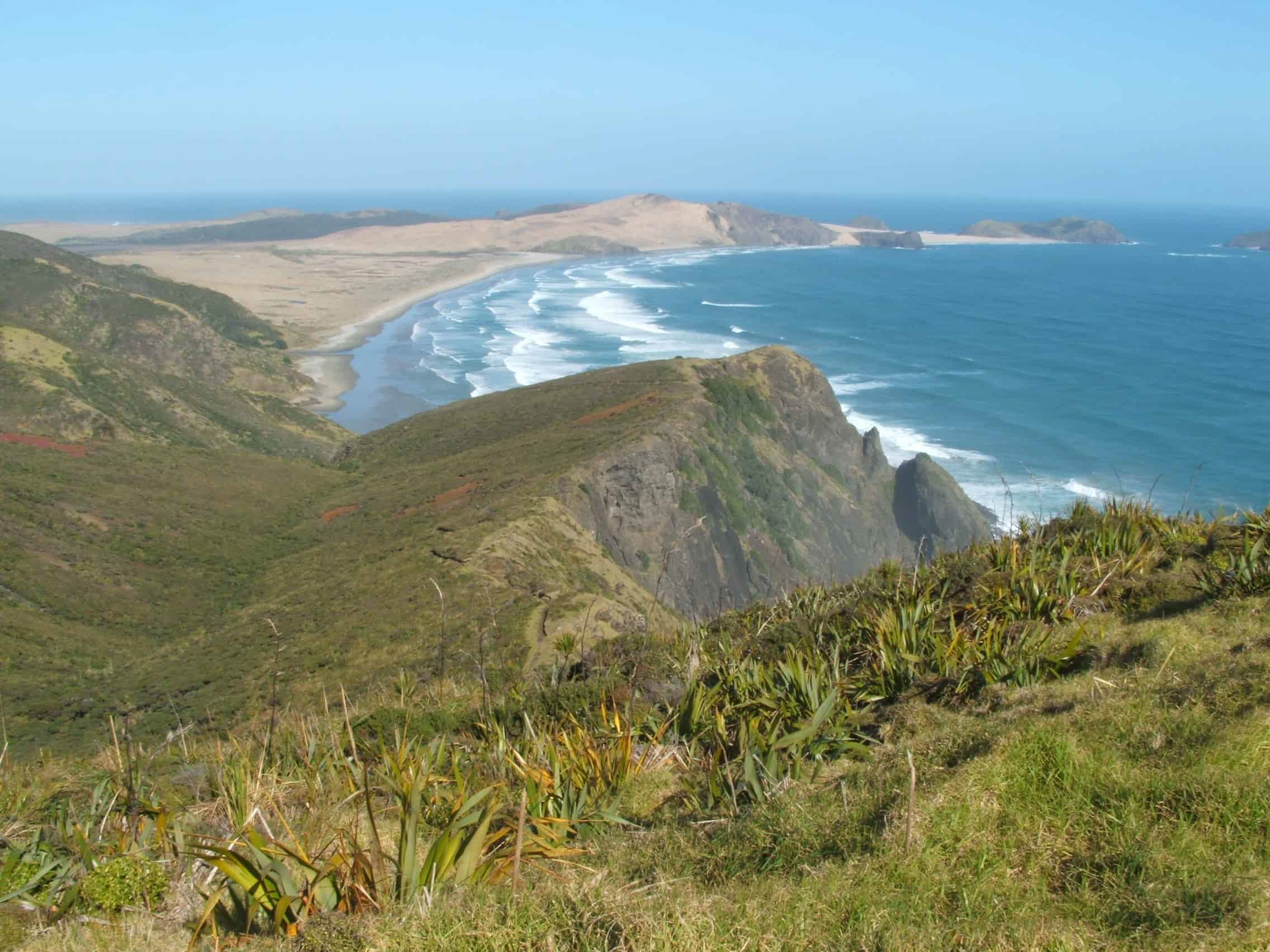
The funny thing about history is that it continues to change, similar to the weather. The Winterless North had a very wet and stormy winter in 2008.
We were there, boots and all!.
All about places to camp – find a park up and enjoy:
NZMCA – Park Over Property Scheme
Camping.org.nz
Department of Conservation – freedom camping
Rankers – find a campground
RV Park – Kerikeri – where we parked up for most of the winter to explore the North.
NZ Tourism – Accommodation, campsites and holiday park
Heritage Sites – Northland

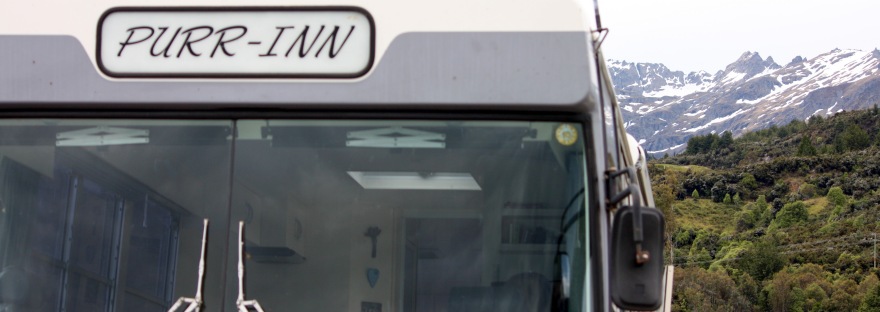
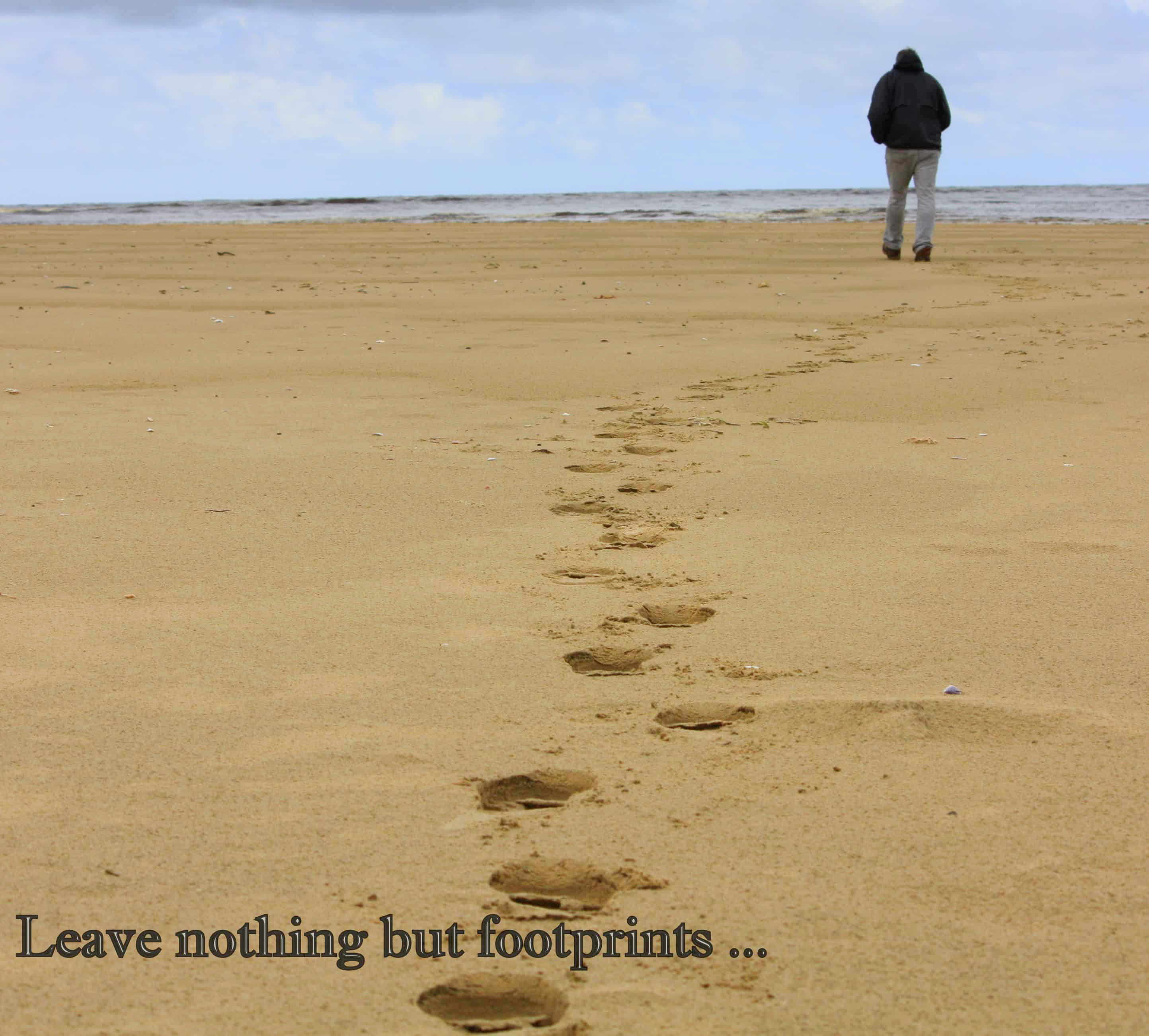
Where to park would be a great concern of mine. We spent my childhood holidays under canvas in Cornwall. The field next to the campsite was full of static caravans and it always looked horribly regimented and crowded.
LikeLiked by 1 person
Luckily we never spent the majority of our time motorhoming being regimented and crowded. That only happened when we went to motorhoming events. Most campsites in winter are not so crowded hence far more pleasant to use. Living in such a small mobile apartment years ago, we soon got used to having other motorhomers close to us and also being parked up in glorious vistas with no houses or other humans around. More on that at a later stage. This post has been in my drafts section for months!!
LikeLiked by 1 person
So true about not judging a book by its cover when it comes to people you meet on the road!
LikeLiked by 1 person
Yes, a group of motorhomers are a bit like a bag of licorice allsorts 🙂
LikeLike
Apart from the parking issue I think my main worry would be driving such a big beast on narrow roads! I must admit I do quite like the idea of having a mobile home though, but only if I was single. I’d hate to share such a small space.
LikeLiked by 1 person
Jude, you have to have a good relationship or I should say tolerance is a big factor when it comes to motorhoming fulltime. We had our moments, same as most couples. Our next “home” will be small, just don’t want a large living space. I can’t see us having another motorhome, perhaps rent one. Smaller is much easier especially in NZ and the UK. I never drove the motorhome, I left that deed to the Squire 🙂
LikeLiked by 1 person
I don’t need a large home, but we both like to have our own space.
LikeLiked by 1 person
Always a good idea to have your own space. Which can be achieved in different ways. Depends on what you want to do. Interesting as we went from a large house on 14 acres to a motorhome.
LikeLiked by 1 person
If you were starting out now, it would be so much easier Sue. Solar panels and batteries have got so much cheaper. You wouldn’t need to worry so much about getting to a powered campsite. Fascinating post. Keep them coming.
LikeLiked by 1 person
Thanks Wendy, and you are right they are so much cheaper now, because of the Chinese imports. It was a challenge during that first winter 😀
LikeLiked by 1 person
Oh this is funny, because we are exactly the same when we are looking for somewhere to park up for the night. Many times Jon’s looked at my expression after turning off the engine only to raise his eyebrows and turn the engine back on again LoL! In our case, it’s more whether we’d be getting a knock on the door by some official person saying,”sorry, not allowed to park here” Oh poop!! It can be difficult in England. Scotland is much better for wild camping. Love this series, this made me smile 🙂
LikeLiked by 1 person
I thought you would understand, Sam 🙂 Your comment certainly made me smile! Yes, well I have a few stories about an official banging on our door and us pleading to the council office workers that we only missed the “proper parking place” by metres, still got a fine of $80. What was terrible about that morning was the fact other people had followed our example thinking that it was okay. Moral of that story is, don’t assume another motorhomer is correct, do your own research 🙂 Scotland would be magical to wild camp around.
LikeLiked by 1 person
Oh dear 😣 that’s harsh being fined Eek 😬 yes we may just go again to Scotland next summer 😊
LikeLiked by 1 person
I dream of getting in a motor home and touring around the Western part of the USA ~ a sense of freedom and also when running into others, the opportunity to meet other like minded souls 🙂 Beautiful photos ~
LikeLiked by 1 person
Thanks and hope you do get the chance to do motorhoming in America.
LikeLike
Really missing the freedom of motorhoming…
LikeLiked by 1 person
Motorhoming does give that sense of freedom. We loved it. Now there are too many in NZ!
LikeLiked by 1 person
I wonder what it’s like in Australia, caravans used to be the big then there for many years.
LikeLiked by 1 person
I know that there is a whole “community” who call themselves the Grey Nomads, that travel around Australia. I think caravans are still the way to go. Though one couple who I enjoyed gaining information from when we were motorhoming in NZ and Australia was http://hobohome.com/index.php Doesn’t look like they are travelling fulltime I know that they did buy some land up in Queensland years ago.
LikeLiked by 1 person
Yes there is and it’s probably what I’ll be doing when I’m even greyer! 😉
I’ll check the link out. QLD is a great State for motorhoming, but then again, a lot of Australia is as still a lot of places that are free. 🙂
LikeLiked by 1 person
Yes, we loved motorhoming around the small bits we did, though we have done over 20,000kms and only managed a small area 🙂 NZ was becoming very restrictive when we stopped. Sadly, many people spend too much on a depreciating asset. The prices for new motorhomes is eye watering!!
LikeLiked by 1 person
I would never buy a new motorhome as I’ve never bought a new car – just not worth it, but then, not everyone is like me (thank goodness). 😉
LikeLiked by 1 person
I can see the merits of doing both. Though could never afford to buy new for either a motorhome or a car. Most important is that whatever you buy it is what will do what you want it to do, eh 🙂
LikeLiked by 1 person
Very true and that it doesn’t break down! 😉
LikeLiked by 1 person